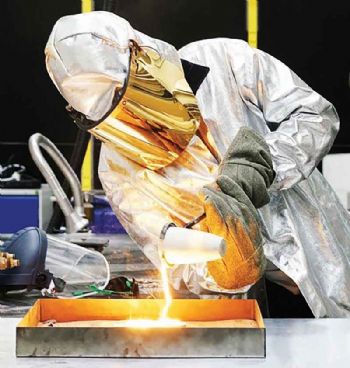
In today’s steel industry, innovation is crucial in keeping pace with changing technologies and customer requirements, but developing new steel alloys can be a very slow process, with lots of different stages. It requires costly trials on hundreds of tonnes of material.
Following £7 million of EPSRC funding for a new ‘virtual factory’ at Swansea University (
www.swansea.ac.uk) (set up in partnership with Tata Steel and the Warwick Manufacturing Group), developing and testing new steel alloys will now be up to 100-times faster.
The aim of the collaboration is to combine physical testing and computational modelling to rapidly assess hundreds of small-scale samples, covering areas such as strength, electrical and mechanical properties, as well as durability and resistance to corrosion.
Test data can be fed into computational models, further refining their accuracy and providing better predictions on the final material properties. Alloys that show promise can then be investigated at a larger scale and in more detail.
The process, which is called Rapid Alloy Prototyping, has been under development at the MACH1 labs at Swansea University and WMG’s Advanced Steel Research Centre at Warwick.
Effectively, it means that much of the testing can be carried out in research labs and imaging suites, rather than in an actual steel plant.
The difference this new approach could make is enormous: 100 samples can be tested in the time that it currently takes to test one.
Moreover, the samples can be tiny — only a few grams — whereas current testing can require up to 900 tonnes of material, up to 98% of which has to be made into new steel products at a cost to the business.
In overall terms, it means that new steel products can be made ready for customers far more quickly; new steels are needed for more fuel-efficient cars, plastic-free packaging, energy-positive buildings and many other applications.